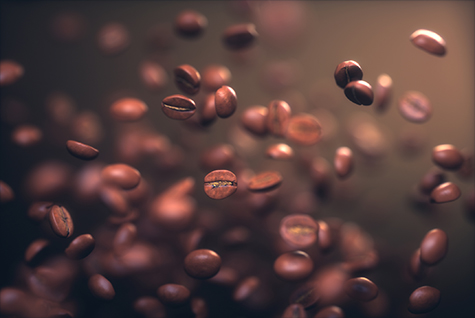Can Drinking Coffee Protect Against Stroke?

Every morning, many of us sip our coffee with no real thought given to the beans behind the brew. But coffee beans are extraordinarily complex fruits containing thousands of beneficial compounds — only a handful of which have ever been individually investigated by scientists.
Not only is coffee packed with antioxidants, but it’s the greatest source of antioxidants in the American diet.
The average American coffee drinker consumes about 3 cups of coffee a day, but extensive research has found that higher volumes — even as high as 12 cups daily — can help prevent most of the age-related diseases that are killing Americans prematurely. And the latest research indicates that your cup of Joe in the morning might offer protection against stroke.
Coffee Lowers the Risk of Stroke
A new clinical research analysis has revealed that moderate coffee intake may offer protection against ischemic stroke — a type of stroke involving a blocked artery just like when we suffer a heart attack. The researchers looked at several different studies from 1966 to 2011. However, most of the studies included in their analysis were completed within the past 10 years.
They grouped coffee consumption into three categories: moderate (1-3 cups a day), high (4-6 cups a day) and very high (greater than 6). All three groups of coffee drinkers were compared to a control that drank no more than 1 cup a day. The total number of people included in their analysis was 484,757.
Here’s what they found: Drinking 1-3 cups of coffee a day — the moderate group — was associated with a significant decreased risk of stroke. The group of coffee drinkers labeled as high showed a trend towards risk reduction, but it was not a significant drop. The very high group of coffee drinkers showed no decrease in risk.
The researchers were cautious when concluding, “The results of this meta-analysis, which included prospective studies of samples of the general population, indicate that coffee consumption is not associated with a higher risk of stroke and that actually habitual moderate consumption may exert a protective effect independently from most identifiable confounders.”
Basically, what they are saying is that drinking coffee does not increase your risk of stroke and may even reduce your risk if you drink 1-3 cups of coffee a day. But they’re cautious because their analysis was unable to account for the different types of coffee beans and brewing methods.
The authors feel that their analysis should at least initiate further research into the benefits of drinking coffee. Okay, fair enough.
Not All Coffee is Created Equal
When it comes to obtaining coffee’s full range of benefits, most people aren’t getting their money’s worth. Why? Because most of the coffee bean’s antioxidant content is destroyed during the roasting process required to create a dark, rich brew.
Among the most beneficial antioxidants lost during processing is chlorogenic acid. This one compound from coffee has been clinically proven to lower after-meal glucose spikes and support healthy blood sugar levels.
The good news is that some coffee makers have figured out how to preserve the antioxidant content of coffee during processing of the coffee bean. This means you can enjoy a dark, rich roasted coffee while benefiting from all of those antioxidants, like chlorogenic acid.
